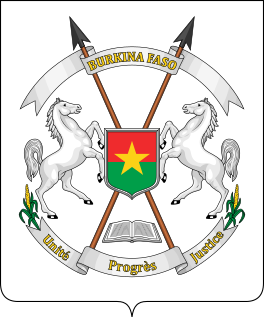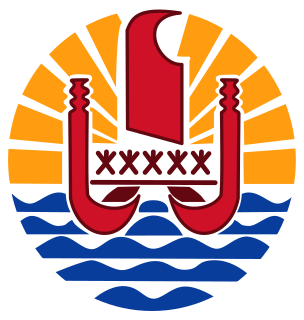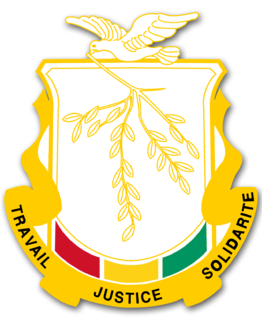
The Fifth Republic, France's current republican system of government, was established by Charles de Gaulle under the Constitution of the Fifth Republic on 4 October 1958. The Fifth Republic emerged from the collapse of the Fourth Republic, replacing the former parliamentary republic with a semi-presidential, or dual-executive, system that split powers between a Prime Minister as head of government and a President as head of state. De Gaulle, who was the first French President elected under the Fifth Republic in December 1958, believed in a strong head of state, which he described as embodying l'esprit de la nation.

A constitutional referendum was held in France on 28 September 1958. Voters were asked whether they approved of the adoption of a constitution for the French Fifth Republic written by Charles de Gaulle. It was overwhelmingly approved, with 82.6% in favour. Voter turnout was 84.9% in Metropolitan France and 79.8% overall.

A referendum on the new constitution of France was held in Madagascar on 28 September 1958 as part of a wider referendum held across the French Union. The new constitution would see the country become part of the new French Community if accepted, or result in independence if rejected. It was approved by 77.64% of voters. The country subsequently became independent on 26 June 1960.

A referendum on the new Constitution of France was held in Moyen-Congo on 28 September 1958 as part of a wider referendum held across the French Union. The new constitution would make the territory an autonomous republic within the French Community, and was approved by 99% of voters. The Territorial Assembly proclaimed the Republic of the Congo on 28 November 1958, and the country became independent two years later.

A referendum on the new constitution of France was held in Ubangi-Shari on 28 September 1958 as part of a wider referendum held across the French Union. The new constitution would see the country become part of the new French Community if accepted, or result in independence if rejected. It was approved by 98.77% of voters.

A referendum on the new constitution of France was held in French Somaliland on 28 September 1958 as part of a wider referendum held across the French Union. The new constitution would see the country become part of the new French Community if accepted, or result in independence if rejected. It was approved by 75.24% of voters.

A referendum on the new constitution of France was held in Dahomey on 28 September 1958 as part of a wider referendum held across the French Union. The new constitution would see the country become part of the new French Community if accepted, or result in independence if rejected. It was approved by 97.84% of voters.

A referendum on the new constitution of France was held in Senegal on 28 September 1958 as part of a wider referendum held across the French Union. The new constitution would see the country become part of the new French Community if accepted, or result in independence if rejected. It was approved by 97.55% of voters.

A referendum on the new constitution of France was held in Gabon on 28 September 1958 as part of a wider referendum held across the French Union. The new constitution would see the country become part of the new French Community if accepted, or result in independence if rejected. It was approved by 92.6% of voters, with a 78.7% turnout.

A referendum on the new constitution of France was held in Chad on 28 September 1958 as part of a wider referendum held across the French Union. The new constitution would see the country become part of the new French Community if accepted, or result in independence if rejected. It was approved by 98.29% of voters.

A referendum on the new constitution of France was held in Mauritania on 28 September 1958 as part of a wider referendum held across the French Union. The new constitution would see the country become part of the new French Community if accepted, or result in independence if rejected. It was approved by 94.04% of voters.

A referendum on the new constitution of France was held in French Sudan on 28 September 1958 as part of a wider referendum held across the French Union. The new constitution would see the country become part of the new French Community if accepted, or result in independence if rejected. It was approved by 97.54% of voters.

A referendum on the new constitution of France was held in Niger on 28 September 1958 as part of a wider referendum held across the French Union. The new constitution would see the country become part of the new French Community if accepted, or result in independence if rejected. It was approved by 78.43% of voters.

A referendum on the new constitution of France was held in Upper Volta on 28 September 1958 as part of a wider referendum held across the French Union. The new constitution would see the country become part of the new French Community if accepted, or result in independence if rejected. It was approved by 99.18% of voters.

A referendum on the new constitution of France was held in the Comoros on 28 September 1958 as part of a wider referendum held across the French Union. The new constitution would see the country become part of the new French Community if accepted, or result in independence if rejected. It was approved by 97.33% of voters.
A referendum on the new constitution of France was held in New Caledonia on 28 September 1958 as part of a wider referendum held across the French Union. The new constitution would see the country become part of the new French Community if accepted, or result in independence if rejected. It was approved by 98.12% of voters.

A referendum on the new constitution of France was held in French Polynesia on 28 September 1958 as part of a wider referendum held across the French Union. The new constitution would see the country become part of the new French Community if accepted, or result in independence if rejected. It was approved by 64.40% of voters.
A referendum on the new constitution of France was held in Saint Pierre and Miquelon on 28 September 1958 as part of a wider referendum held across the French Union. The new constitution would see the country become part of the new French Community if accepted, or result in independence if rejected. It was approved by 98.06% of voters.

A referendum on the new constitution of France was held in French Cameroons on 28 September 1958 as part of a wider referendum held across the French Union. The new constitution would see the territory become part of the new French Community if accepted, or result in independence if rejected. It was approved by 96.6% of voters.

Guinea has had four constitutions. The current constitution was approved by referendum on 19 April 2010 and formally adopted on 7 May.




















